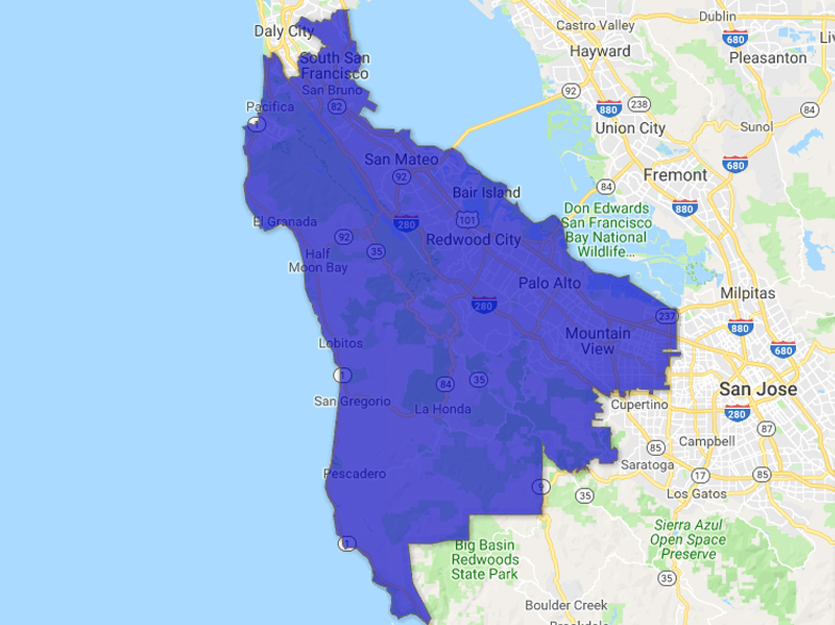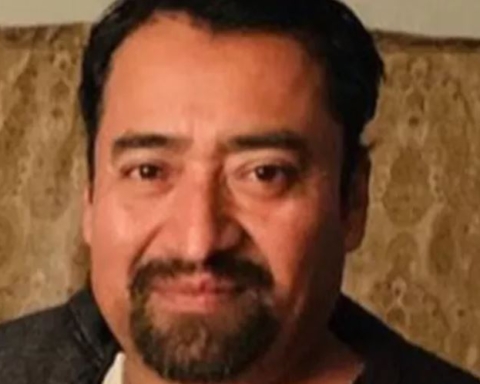It is tempting to think it is much too early for all the activity around the race to replace State Senator Jerry Hill.
But the 2020 primary election is less than a year away and the 13th Senate District is huge – more than 900,000 residents, more than 500,000 registered voters and a geography that runs from South San Francisco to Sunnyvale.
Which is why four of the candidates – Redwood City Councilwoman Shelly Masur, venture capitalist/philanthropist Josh Becker, Burlingame City Councilman Michael Brownrigg and former Mountain View Assemblywoman Sally Lieber – are already working hard raising money, amassing endorsements and making as many public appearances as possible.
Perhaps it’s the size of the district or a commentary on the political mood, but among political insiders, there is the sense that the field of candidates is still unsettled. The rumor continues to circulate that San Mateo Mayor Diane Papan may get into the race. And now comes word that Millbrae Councilwoman Anne Oliva is in the race.
Those who have been at it awhile filed campaign finance reports at the end of the year and they showed a massive amount of money raised by Becker, who parlayed his extensive ties to the tech industry to report a total raised of $352,329. The number is slightly misleading. Eight of his donors doubled-up, giving him the maximum donation for both the primary and the general election, so the number of funds raised for the March election is closer to $317,000.
But it’s still a lot of money — $100,000 more than was raised by Brownrigg, who collected $195,811; six times more than was raised by Masur, who collected $52,259; and, shall we say substantially more than Lieber, who reported contributions of $2,320 at the end of 2018.
Becker received 35 contributions of $4,4,00, the maximum an individual can donate to a legislative candidate, and another 46 donations of $1,000. The donors are almost exclusively from the tech and venture capital industries. The two highest-profile donors are Reid Hoffman, co-founder of LinkedIn, and Steve Westly, venture capitalist and former state Controller and unsuccessful candidate for governor in 2006. Each of them gave the maximum of $4,400; Hoffman gave another $4,400 for the general and Westly gave another $1,000 toward the general.
BROWNRIGG’S BUCKS: The $195,000 raised by Brownrigg is an impressive amount given that he got into the race much later than Becker or Masur, but it’s of note that the total included a single contribution of $50,000 made by Brownrigg himself, or more than 25 percent of his funds. Brownrigg has been a venture capitalist for a dozen years, most recently as founding partner of TOTAL Impact Capital, an international firm that invests in companies that are financially and socially impactful. Add in another $13,200 from family, and it looks like it’s nice to be a Brownrigg. Like Becker, Brownrigg also collected donations for the general election, which means the money he has available for the primary is more like $142,000.
MASUR’S MONEY: Masur’s $52,259 reflects her extensive local political roots as a first-term councilmember, former school board member for 10 years and CEO of a statewide education foundation, the latter raising the possibility that she could have significant labor connections that will result in more fundraising totals. She already has received $4,700 from the Sprinklers, Fitters and Apprentices and $9,300 from the electrical workers union. Her local donors include newly minted Redwood City Councilwoman Giselle Hale (of whom Masur was an early endorser), Belmont Councilman Charles Stone, San Carlos Councilman Ron Collins and San Mateo County Sheriff Carlos Bolanos. Asked about raising an amount of money that was much less than Becker’s, Masur touted her list of endorsements, which includes 59 current or former city council and school board members from the district.
AND THEN THERE WERE FIVE: Millbrae’s Oliva confirmed with Political Climate this week that she is in the race. She posted that she is running on her Facebook page on Sunday. There are not many details available yet, although her announcement seemed to generate the requisite amount of enthusiasm on Facebook. Oliva was re-elected for a second term on the council last year. She owns her own real estate firm and has been active in the California and National Associations of Realtors. … In a district as large as the 13th, Millbrae would seem to be an iffy foundation for a Senate run, but given how development issues and the jobs/housing imbalance have dominated local politics in recent elections, real estate interests could be poised to play a major role in this campaign.
SPLITTING THE VOTE: The 13th District’s voter registration is 66.5 percent San Mateo County and 33.5 percent Santa Clara County. With Oliva, there are four candidates from San Mateo County and only one, Lieber, from Santa Clara County. All five are Democrats. There is the real possibility the four from San Mateo County could split their county’s vote and tilt the outcome toward Lieber. It also means all five could divide the Democratic vote and clear the path for a Republican to make it into the general election, even though the Republican registration in the district is a skimpy 15.7 percent.
A NO-PARTY PARTY: One of the campaigns has tried to make an issue of Brownrigg’s party registration. Brownrigg is a Democrat, but, until fairly recently, he was registered Decline to State, what now is called No Party Preference (NPP) in California. He worked overseas as a U.S. diplomat for more than a decade and “in the civil service, one is highly discouraged from being partisan,” Brownrigg said, and he made the decision to register with no political party. “I’ve always been a Democrat in the polling booth,” he said.
In that sense, Brownrigg is probably like a great many voters in the district, where registration is 49 percent Democrat and NPP is 31.5 percent, twice the number of registered Republicans. “Nobody has the market cornered on good ideas and the best policies are the policies that bring people together,” Brownrigg said.
The same campaign raised questions about a single campaign donation by Brownrigg to Central Valley Republican Congressman Jeff Denham, who was ousted from office in last year’s Democratic surge. Brownrigg’s donation was in 2012 and he said he made it because Denham was one of the strongest opponents to High Speed Rail. At that time, the Burlingame City Council was hungry for allies in their own effort to stop the HSR project. “I respected his opinion on High Speed Rail. … I thought he was calling it like he saw it,” Brownrigg said.
Brownrigg also has donated to Democrats Claire McCaskill, Kamala Harris and Hillary Clinton and he said those were much larger donations.
Contact Mark Simon at mark.simon24@yahoo.com.
*The opinions expressed in this column are the author’s own and do not necessarily reflect the views of Climate Online.
Image: Map of Senate District 13 courtesy of Sen. Jerry Hill’s website






